Category Archives for "Self Love"
How to love yourself
How to love yourself
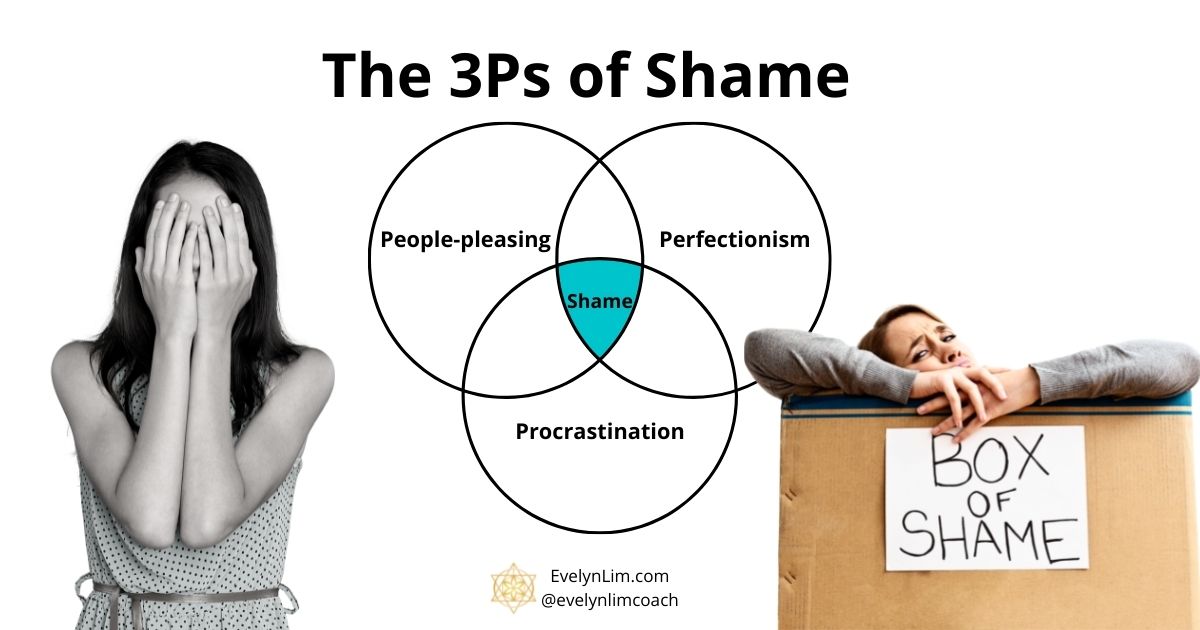
The 3Ps of Shame can be found in People-pleasing, Perfectionism and Procrastination.
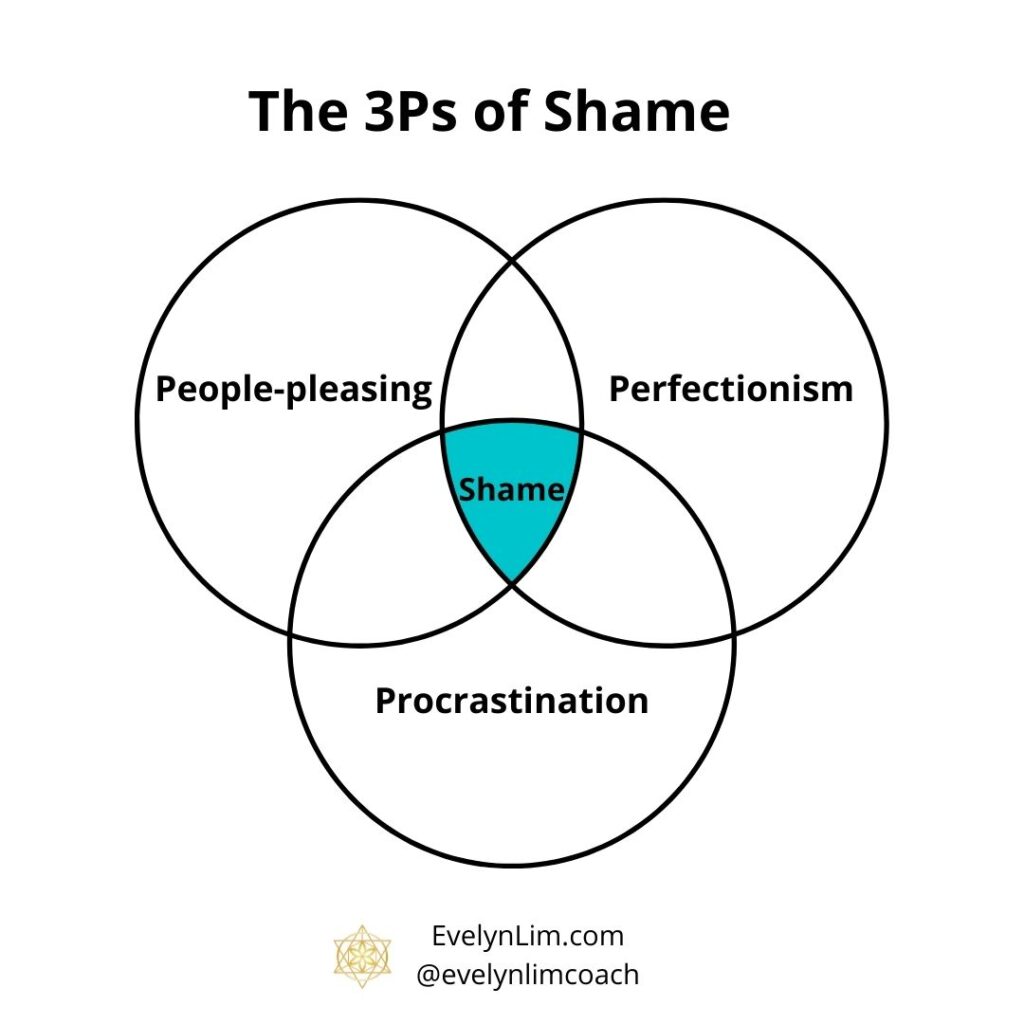
People-pleasing – refers to seeking approval from others and pleasing others in their needs and wants and often at the sacrifice of our own.
Perfectionism – the need to be perfect in the way we are, do or have and the refusal to accept flaws, imperfection or mistakes.
Procrastination – refers to the constant postponement of activities & employing distraction tactics, so that we can hide from our shame.
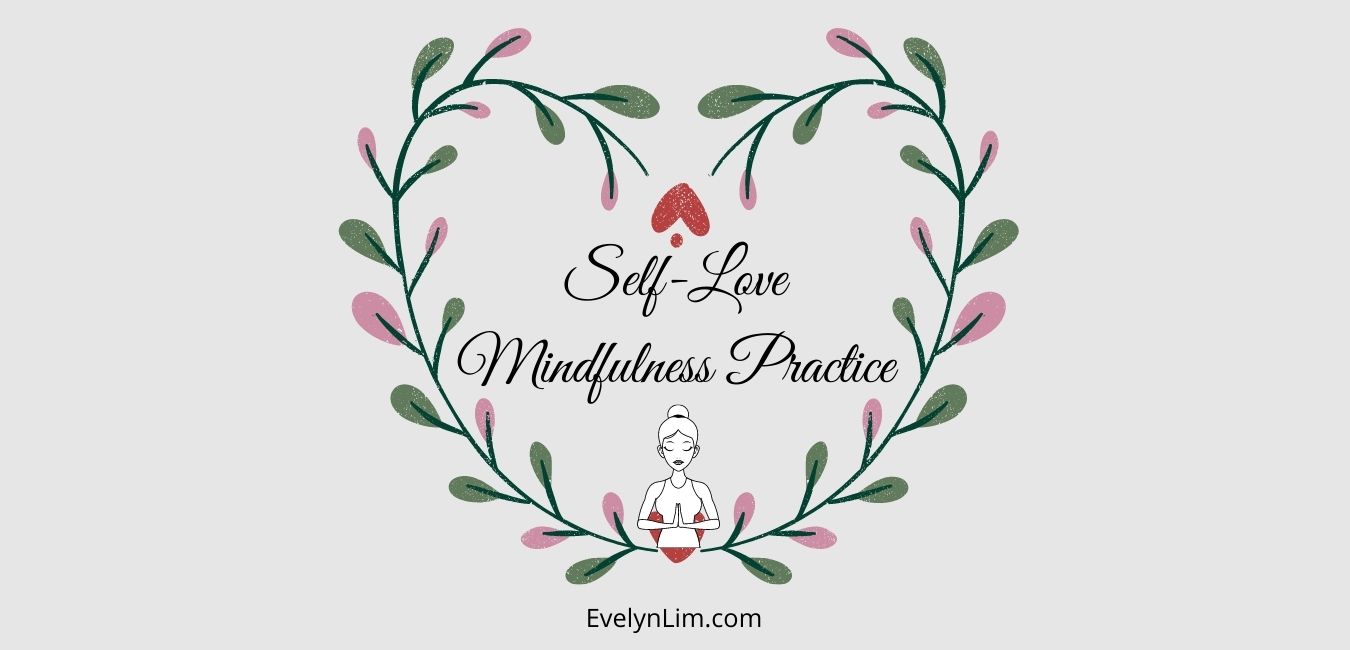
This means that loving ourselves is not a mere one-time or a short-term exercise; whether we are going for a therapy session, a singing bowl meditation to heal our heart chakra or buying ourselves a branded bag so that we can feel better.
Self-love is much more than any of these.
Some of us may have the expectation that self-love can happen magically overnight. The truth is that for those of us with trouble loving and accepting themselves unconditionally, it takes consistent work. It’s certainly been my experience.
Over the years, life would throw me a new challenge again and again and due to being triggered, I’d find myself reverting to the same pattern of feeling unlovable and unloved. At first, I felt disappointed and bitter that none of the healing I did appear to have worked. It would seem that doing inner work was pointless.
Yet, upon review, I realised that my early efforts were sporadic to begin with. Eventually, after seeing how I was caught in repeated patterns, I began to realise that self-love is not going to be an overnight or a one-time healing thing. It finally occurred to me that if I am interested to have enough of a breakthrough, I need to regard self-love as being more of a practice.
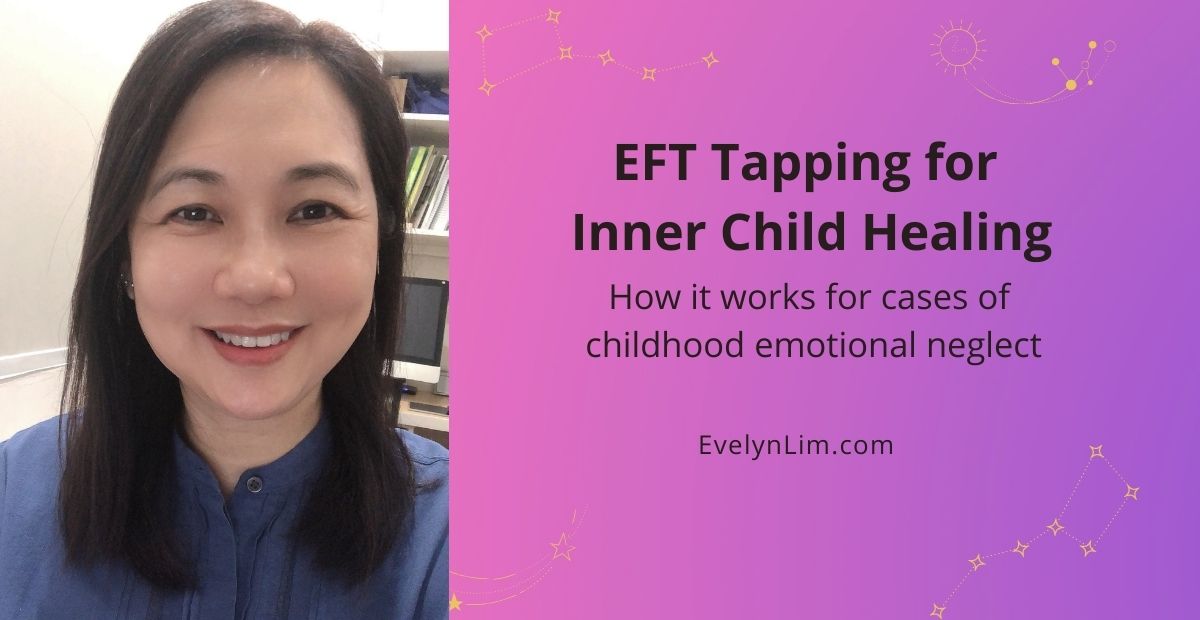
EFT tapping for inner child healing involves using our fingertips to tap on specific meridian points on the face and body for addressing childhood wounds. As our physical reactions today could be tied to issues that stem from childhood, applying EFT is effective because unhealed emotions can get trapped and the body keeps the score. Even though the past is long gone, it is possible to heal in the now by applying tapping.
Download this resource page on EFT Tapping for Your Inner Child.
Women often approach me for help to deal with their stress. Their stress can be anything from dealing with a money or work-related challenge, relationship problems, not feeling “good enough”, low self-love to anxiety issues. They would have been holding on to anger, worry, insecurity and frustration for a long time before asking for help. (Understandably, most of us face resistance with getting assistance.)
Some would share about experiencing the same repetitive themes of abandonment and rejection in their lives. Thus, when we get together in a session, we usually begin by patiently peeling off the layers to determine the root cause of their issues. Invariably, we would find out that these issues stem from their past – primarily in childhood. As a result, we are led to working on healing their inner child.
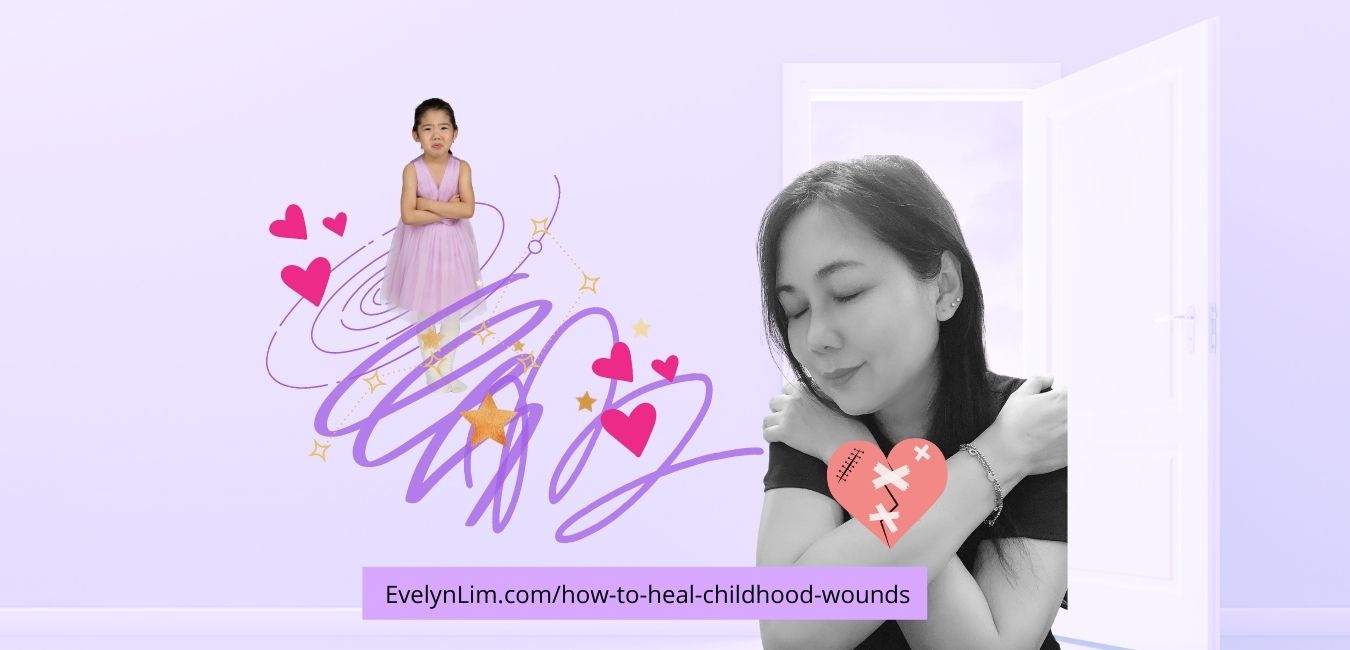
A childhood wound is an emotional pain or a negative belief that a part of us internalised due to a traumatic past event or the relationship we had with our parents or caregivers when we were young.
As I have discovered, unresolved childhood wounds can adversely affect the quality of life in our adult years. Indeed, they have an impact on our personalities, beliefs, career choices, and relationships. We can also be passing on our childhood wounds to the future generations.
Our wounded child is acting up if we often find ourselves in self-sabotage, making poor choices or having over-the-top reactions to triggers. She or he is crying for attention of unhealed emotions. If we choose to ignore our wounded child, we can be stuck for years.
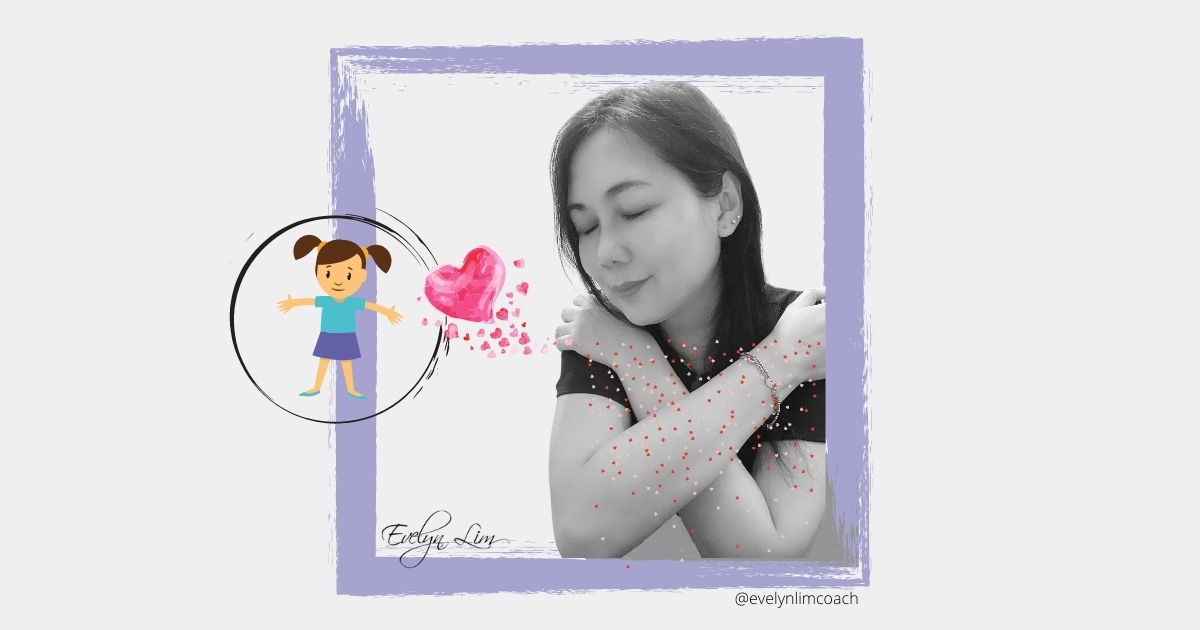
How to recognise that you need self-love healing to address the needs of your inner child?
Or if your current struggles are connected to a wounded inner child?
According to psychologists, every adult has an inner child.
Your wounded inner child is that part of you that never grew up, even though you are now an adult. She may be your younger self as a newborn or a 6 year old. If she is wounded, it means that she has been holding on to hurt, disappointment, pain or any negative emotions, and her needs have not been met.
If the needs of your inner child remain unresolved, it can potentially affect your mental well-being and relationships. Thus, inner child healing is a crucial part to deep psychological work. It involves the spiritual process of reconnecting to the wounded elements of your inner child.
Here are 7 indicative signs that you need self-love healing which involves “meeting” your inner child…
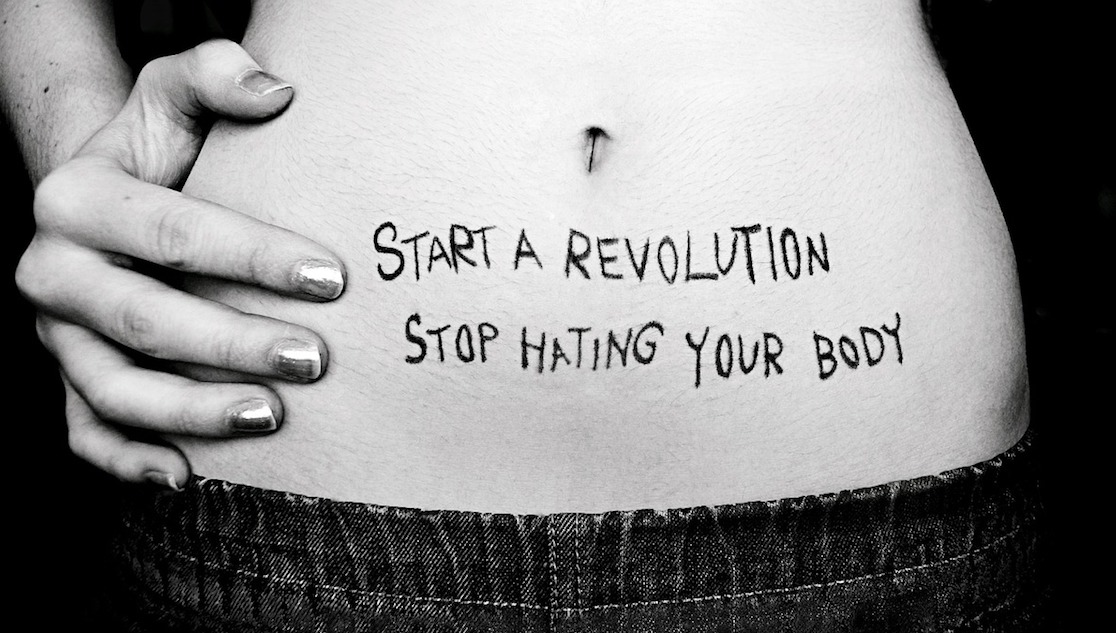
You may find it hard to love and accept yourself if you believe and feel that you are ugly. Hate to look at yourself in the mirror? Have challenges with attracting a soul mate or your dream job because you think that your looks is in the way?
Read on to find out how you can love and accept yourself anyway. I am updating this post with more tips as I am discovering that this is an issue that afflicts a number of the clients I have been working with.
Through this post, I hope to stress the importance of self-love despite having an appearance that you may perceive as “flawed”. When you have a negative perception about yourself, your self-confidence comes down. This ultimately affects your ability to achieve your highest potential and also with manifesting what you want in life.
In fact, you could be aware that how you look to yourself matters more than what other people are saying. Whether or not you are truly “ugly” can be an issue that is perceived or real. Some women can sweat over a mole or having wrinkle lines. Others may have features that could be deemed ugly by society’s standards. Whatever the case may be, you face difficulties with getting past your looks, no matter how others may assure you.

Have you ever wondered why you may continue to have body image issues, in spite of consciously knowing that you need to love yourself?
Body image is how you see yourself when you look in the mirror or when you picture yourself in your mind. It is what you think and feel about your physical body. Many of us internalize messages during our childhood. These messages can lead to either positive or negative body image. Having a healthy body image is an important part for practising self-love.
While most of us do not suffer from eating disorders caused by poor body image issues, we have the tendency to be overly critical in how we look. Chances are, if you are like the vast majority, you’d find yourself constantly thinking “I am flawed” or I don’t look good enough”. Thoughts like these can have a negative impact on self-confidence and your ability to shine!
There was a day when I was rudely awakened to why it could be so challenging for women to stop beating themselves up over their appearance. It happened when I was reading an article about Lady Gaga who encouraged thousands to embrace their bodies after hitting back at critics who called her fat. The article was in the pull-out Friday segment of our main newspaper. The writer then went on to rounding up 5 celebrity women who were proud of their curves.

Were you taught to believe that striving for perfection is a worthy goal since young? Perhaps, from the time when you were a child, you learnt that perfect scores are ideal. If you did not, you would be penalised even if it was just one mistake out of every ten correct ones. And so, you have been conditioned to believe that you need to be perfect – that is, without a flaw, failure or weakness.
What you crave for is approval, in the strive for perfection. The shadow side is the fear of rejection that you hold. You fear being ridiculed and not accepted for who you are if you are perceived as less than perfect.
Note that there is nothing wrong with wanting to produce your best work or hoping to present yourself in a good light. However, having a perfectionistic streak can have negative consequences. You are in the energy of “striving”, in seeking to meet a certain standard; failing which, you would shred yourself to pieces. The thought of imperfection makes you feel not-whole, incomplete, discontented and ill. The emotion that you experience is shame. There is a strong sense of disapproval towards the self.

A reader to my blog posed me this question: How to Ground Yourself. Well, it can be accomplished in a few ways. I would like to share my ideas in this article.
(Update: I’m republishing this post once again as the ideas are timeless and as I am still being asked “how to ground yourself” today.)
What Is Grounding?
Whenever I get a question about grounding, I am aware that mostly, my clients refer to spiritual grounding.
Continue reading
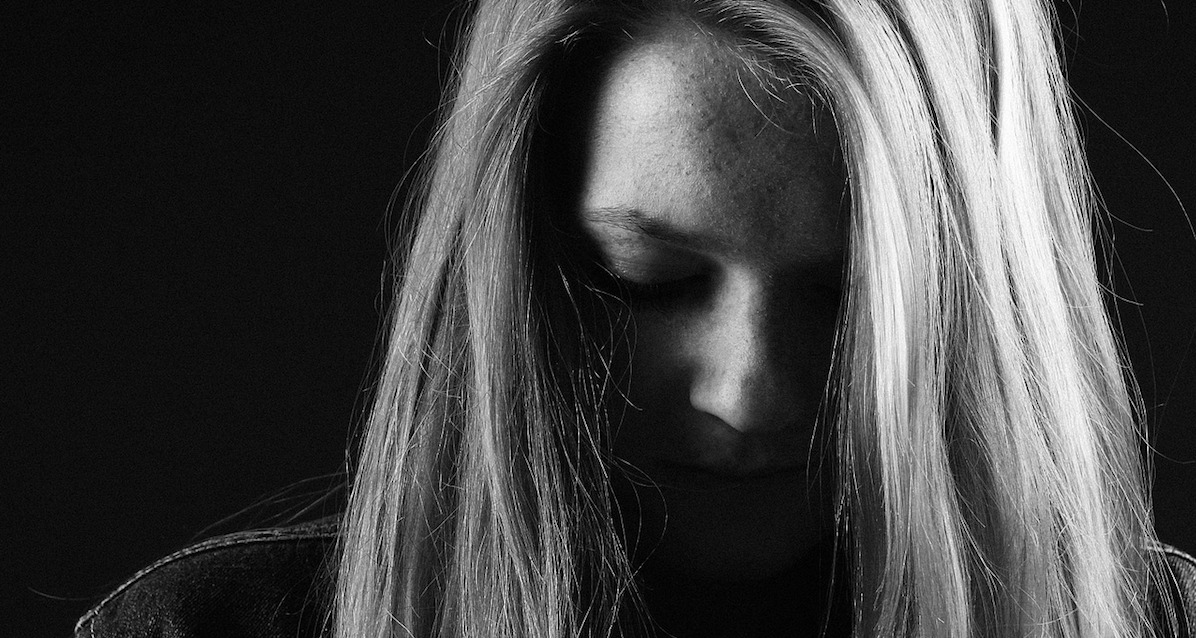
Learn to recognise signs of inferiority complex. An inferiority complex is a state whereby you persistently believe and feel that you are not able to measure up to others. It is a sign of low self-esteem. The thought behind an inferiority complex is “I am not good enough”.
“The greater the feeling of inferiority that has been experienced, the more powerful is the urge to conquest and the more violent the emotional agitation.” – Alfred Adler
At least 95% of people have at one point or another encounter thoughts and feelings of inadequacy. However, you are said to have an inferiority complex should you constantly compare yourself with others. You see yourself as being in second place or falling short. Consequently, you feel poorly about yourself.